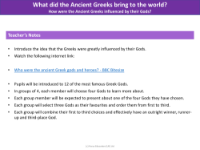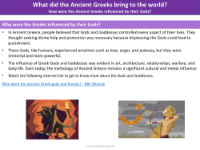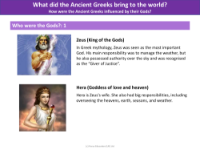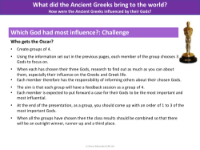How were the Ancient Greeks influenced by their Gods? - Presentation
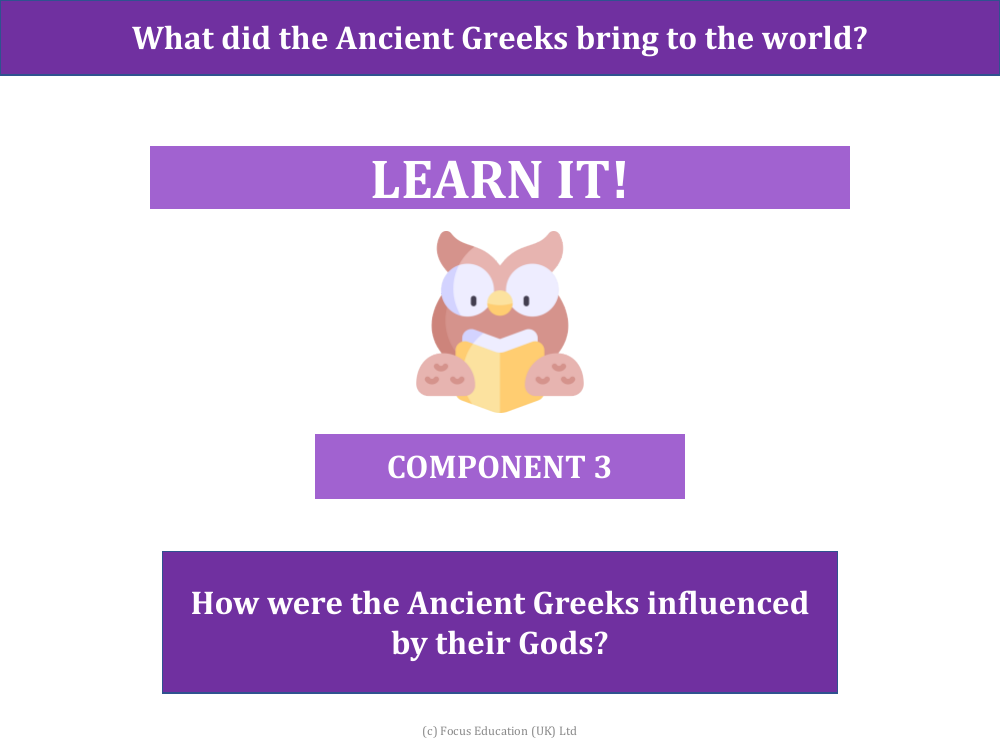
History Resource Description
The Ancient Greeks were profoundly influenced by their pantheon of gods and goddesses, who were believed to preside over every facet of human life, from the mundane to the monumental. The gods were thought to possess human-like emotions such as love, anger, and jealousy, yet they were immortal and wielded extraordinary powers. These divine beings played a pivotal role in Greek culture, leaving their mark on art, architecture, relationships, warfare, and everyday activities. Their mythology has left a lasting legacy that continues to shape cultural and media narratives even in the modern era. To delve deeper into the significance of these deities, students are encouraged to explore educational resources that introduce them to the twelve most renowned Greek gods and heroes.
During the educational exploration, students are tasked with researching and presenting information about specific Greek gods, fostering a deeper understanding of their characteristics and realms of influence. For instance, Zeus, as the king of the gods, governed the weather and was known as the "Giver of Justice," while Hera, his consort, watched over the heavens and earth. Poseidon ruled the seas and was associated with fertility of the land, whereas Demeter was celebrated for her generosity in granting the gift of harvest. Through group activities, students evaluate the impact of these gods on Ancient Greek society, culminating in a class-wide assessment to determine which deity was deemed the most influential. This inquiry not only enhances their knowledge of ancient mythology but also highlights the profound connection between the Greeks and their gods.


